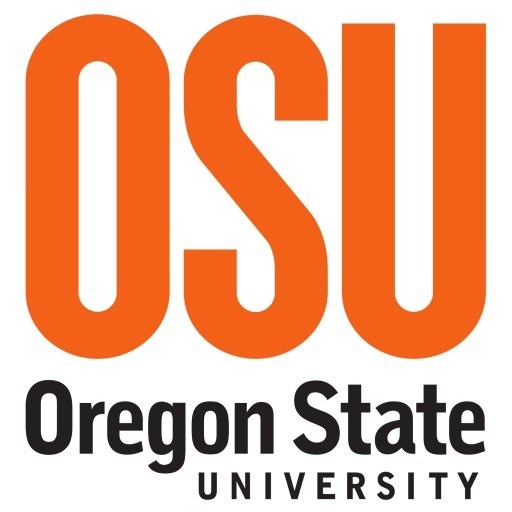Photos of university / #oxford_uni
The Master of Science in Quantum Technology at the University of Oxford is a comprehensive postgraduate program designed to equip students with a deep understanding of the fundamental principles and cutting-edge applications of quantum science. This interdisciplinary course combines rigorous theoretical coursework with practical laboratory experience, ensuring graduates are well-prepared for careers in academia, industry, and research institutions focused on quantum computing, quantum communication, quantum sensing, and other emerging quantum technologies. Throughout the program, students will explore topics such as quantum mechanics, quantum information theory, quantum algorithms, and device engineering, gaining both conceptual insight and technical skills. The curriculum is complemented by collaborative projects, seminars with leading experts, and opportunities for interdisciplinary research, fostering innovative thinking and problem-solving abilities essential in this rapidly evolving field. Students also benefit from access to state-of-the-art laboratories and resources, engaging in hands-on experiments and research that address real-world challenges. The program is suitable for graduates with backgrounds in physics, mathematics, engineering, or computer science who are eager to develop expertise in the transformative world of quantum technology. Graduates of this program will be uniquely positioned to contribute to the development and commercialization of quantum devices and systems, advancing the UK and global efforts in quantum research and innovation. The University of Oxford's tradition of academic excellence, combined with its strong links to industry and research organizations, provides an exceptional environment for students to thrive and make meaningful contributions to this exciting frontier of science and technology.
Course sessions consist of a combination of seminars, lectures and collaborative course work. These sessions take place three mornings a week. In addition:
- you will have the opportunity to work together with your course colleagues on selected higher education topics and problems
- you will reflect on your own higher education experience, and on the University of Oxford as your new educational context
- you will be able to select the focus for your MSc dissertation from a range of relevant international higher education contexts
- you will have one-to-one meetings with your dissertation supervisor on a regular basis to discuss your progress and the design of your own research study
- you will spend extended time in your chosen research setting during the third term in order to carry out fieldwork for your dissertation
- you will be assessed through a combination of examinations, dissertation and course-work.
Applicants are normally expected to be predicted or have achieved a first-class or strong upper second-class undergraduate degree with honours (or equivalent international qualifications), as a minimum, in a relevant subject, preferably in the social sciences.
For applicants with a degree from the USA, the minimum GPA sought is 3.6 out of 4.0.
If you hold non-UK qualifications and wish to check how your qualifications match these requirements, you can contact the National Recognition Information Centre for the United Kingdom (UK NARIC).
No Graduate Record Examination (GRE) or GMAT scores are sought.
- Official transcript(s)
- CV/résumé
- Personal statement:One to two pages
- Written work:Two essays of 2,000 words each
- References/letters of recommendation:Three overall, generally academic
ENGLISH LANGUAGE REQUIREMENTS
Higher level
|
est |
Standard level scores |
Higher level scores |
||
|
IELTS Academic |
7.0 | Minimum 6.5 per component | 7.5 | Minimum 7.0 per component |
|
TOEFL iBT |
100 |
Minimum component scores:
|
110 |
Minimum component scores:
|
| Cambridge Certificate of Proficiency in English (CPE) | 185 |
Minimum 176 per component |
191 |
Minimum 185 per component |
| Cambridge Certificate of Advanced English (CAE) | 185 |
Minimum 176 per component |
191 |
Minimum 185 per component |
- Global Education
- Hill Foundation Scholarships
- A number of Research Council awards are available each year from the Economic and Social Research Council (ESRC), the Natural Environment Research Council (NERC), and Arts and Humanities Research Council (AHRC).
The Master of Business Administration (MBA) at the University of Oxford is a prestigious postgraduate program designed to equip students with the essential skills and knowledge needed to excel in the global business environment. Delivered through the Saïd Business School, the Oxford MBA combines rigorous academic coursework with practical management training, fostering innovative thinking and responsible leadership. The program typically spans over one year of full-time study, allowing students to immerse themselves deeply in various aspects of business management, including finance, strategy, marketing, organizational behavior, and leadership development.
Students benefit from a diverse cohort of peers from around the world, enabling a rich exchange of ideas and cultural perspectives. This diversity enhances the collaborative learning environment and prepares graduates to lead in international contexts. The curriculum emphasizes experiential learning, including real-world consulting projects, leadership development programs, and opportunities for international study trips. Additionally, the Oxford MBA offers tailored elective modules that allow students to focus on specific areas of interest, whether in entrepreneurship, social impact, or healthcare management.
The program also provides extensive networking opportunities through various events, guest lectures, and alumni connections, fostering relationships that can support graduates' careers long after completion. The admissions process is highly competitive, selecting candidates with strong academic backgrounds, significant professional experience, and leadership potential. Graduates of the Oxford MBA have gone on to successful careers in consulting, finance, technology, entrepreneurship, and other sectors worldwide. Overall, the Oxford MBA aims to develop principled, innovative leaders capable of addressing complex global challenges through a comprehensive and transformative educational experience.









